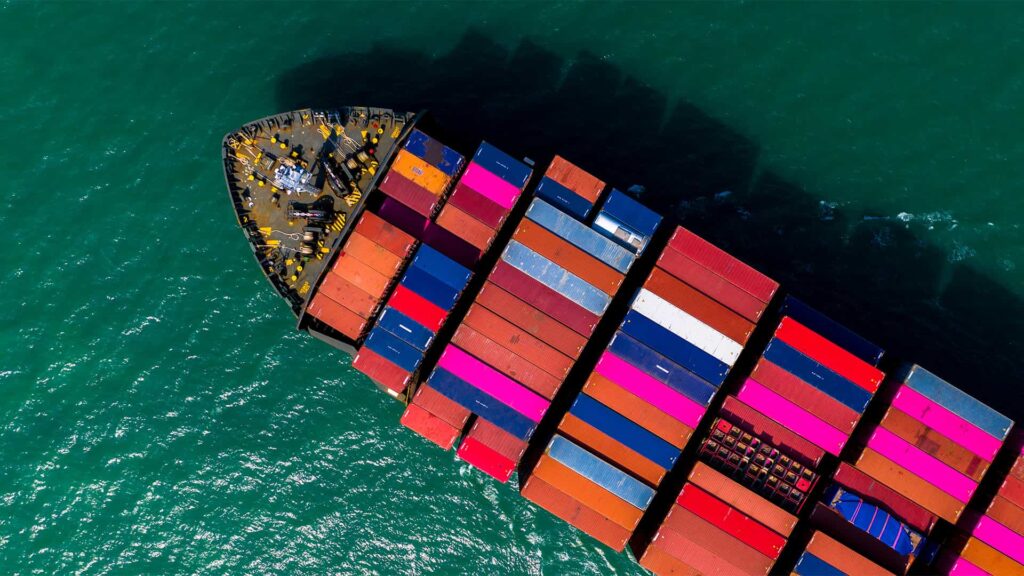SOLAS amendments – mandatory verification of container weights: the clock is ticking… July 2015
With just less than one year left before the amendments to SOLAS VI Regulation 2 take effect, now is the time for anyone involved in the container supply chain to consider how they will be affected and what they need to do to be ready for 1 July 2016.
Introduction
As previously reported the amendments shall require the verification of the gross mass of packed containers before they are placed aboard ships. Participants in the container supply chain now need to agree amongst themselves the processes necessary to ensure that verified weights are available to allow them to be used in planning the vessel’s stowage. This article looks at some of the issues for participants to consider and how the amendments will be implemented in the UK.
What has happened and where are we now?
Following the adoption of the amendments by the International Maritime Organization (IMO) in November 2014, national administrations in SOLAS contracting states are now working out the detail of local implementation and the UK has been at the forefront of such work co-ordinated by the Maritime & Coastguard Agency (MCA). The MCA recently published its guidance on the implementation of the SOLAS VI Regulation 2 amendment in the UK1. Many other administrations are still to follow.
In the UK these requirements are given force of law through statutory instruments and apply to export containers; the gross mass of inbound transhipment and import containers should be verified in the country of loading or through prior agreement between the shipper and carrier.
It is possible that without dialogue between participants in the container supply chain and the necessary amendments to planning, procedures and communications there could be operational, commercial and legal repercussions affecting shippers, forwarders, hauliers, carriers and terminals. It is key that national administrations outside the UK step forward with details of implementation as soon as possible in order to allow the industry to form local workgroups and standards which can be tried and tested in good time before 1 July 2016.
We are aware that many major carriers and global terminal operators, amongst others, are already taking the issue very seriously and considering how the changes may affect their businesses, relationships with counterparts and also the commercial opportunities this development may present.
How does this affect me and what do I need to do now?
On the legal and contractual side, forwarders, carriers and terminals need to review their terms and conditions of business and commercial contracts to ensure that they are adequately protected. Intermediaries in the container supply chain in particular need to consider their potential exposure and whether they are the ‘shipper’ or just the ‘booking party’ in future transactions.
There are also a number of practical and operational issues and eventualities to be considered alongside those affecting the shipment time cycle (cut-offs) and sharing of information, whether by documentation or EDI channels. The most obvious of these being where will the packed container, or its contents, be weighed and whether the shipper will rely on method 1 or method 2:
- Method 1 – weighing the packed container using calibrated and certified weighing equipment.
- Method 2 – weighing the packages and cargo items including all packing and securing equipment and adding this to the tare weight of the container, using a certified method approved by the competent authority, in the UK the MCA or its authorised body.
Shippers now need to consider whether they wish to obtain method 2 approval and if so, which route to take. In the UK, there are three main ways in order to obtain method 2 approval:
- Businesses holding an accredited quality management system (e.g. ISO 9001 or ISO 28000) or Authorised Economic Operator (AEO) status type “S” or “F”, which include documented procedures to satisfy the weighing requirement subject to MCA approval.
- Companies operating a company management system including Enterprise Resource Planning (ERP), for example SAP subject to MCA approval.
- Other auditing schemes as approved by the MCA.
Annex 2 of the MCA guidance contains further details on the method 2 application process for UK shippers.
Companies which are authorised to use method 2 shall be registered on a database maintained by MCA which is accessible to approved shippers and to both carriers and terminal operators for them to verify whether containers presented are from companies certified under method 2 as required.
The documentation communicating the verified gross mass of the packed container can be part of the shipping instructions to the carrier or a separate communication (e.g. a declaration including a weight certificate). In either case, the document should clearly indicate that the gross mass is the “verified gross mass”. How the information is documented and passed down the line is subject to commercial agreement between the parties.
Enforcement and compliance concerns
Commercial considerations are paramount in terms of whether there could be additional cost implications and which party, or parties, will bear these. This could particularly be an issue where containers arrive at terminals without a verified gross mass having been communicated to the carrier and/or terminal at, or before, gate-in. If packed containers are received at terminals without a verified gross mass they may not be loaded aboard a ship and it is for individual carriers and terminal operators to devise operational procedures to ensure this regulatory requirement is met at all times.
Carriers and terminal operators should have sufficient documented procedures to demonstrate how they will achieve this. In the UK, records of mis-declarations and corrections must be kept and made available to the MCA upon request. Failure to do so could result in the withdrawal of a company’s method 2 approval by MCA.
In the UK, regulators and authorised cargo inspectors are likely to use an enforcement threshold of +/-5% of the verified gross mass of the packed container. If a business fails to meet the expected standard of an accredited company, the MCA may suspend or revoke its verification agreement thereby prohibiting the company from using method 2 until the deficiencies have been rectified.
Penalties for non compliance in the UK will take two forms:
- Commercial – repacking costs, administration fees, shunting costs, demurrage and detention charges.
- Regulatory – an offence under the relevant statutory instrument renders the offender liable on summary conviction to a fine not exceeding the statutory maximum or, on conviction on indictment, to a prison term not exceeding two years or a fine or both.
In the event of an incident or issue with a container stowed aboard a ship as part of a port state control or investigation by a regulator, the carrier and terminal operator should be able to show their systems in place to ensure that packed containers had a verified gross mass prior to loading and that any changes in this between pre-booking and loading aboard a ship are managed.
What next?
Participants in the container supply chain need to agree the necessary amendments to planning, operational procedures and communications to ensure that verified weights are available before packed containers are placed aboard ships. Parties should consider how the changes may affect their businesses, relationships with counterparts and also the commercial opportunities this development may present. Forwarders, carriers and terminals need to review their terms and conditions of business and commercial contracts. Shippers need to consider whether they will use method 1 or method 2 and if they wish to obtain method 2 approval, which route to take and to prepare their applications. Carriers and terminal operators should have sufficient documented procedures and record keeping in place to protect themselves in case of incidents and potential claims arising.
Join the debate
In the UK, HFW are proud to be hosting a practical one-day seminar on Friday 11 September 2015 organised by ICHCA International which will bring all the interested parties together to discuss how these new IMO regulations on container weighing can be implemented with minimum disruption to the container supply chain. Further details of the event can be found at: http://www.hfw.com/ICHCA-container-weight-verification-seminar.
For more information, please contact Matthew Gore, Senior Associate, on +44 (0)20 7264 8259, or matthew.gore@hfw.com, or your usual contact at HFW.
Footnote
- Maritime & Coastguard Agency, Marine Guidance Note MGN 534 (M+F)
Download a PDF version of ‘SOLAS amendments – mandatory verification of container weights: the clock is ticking… July 2015’











